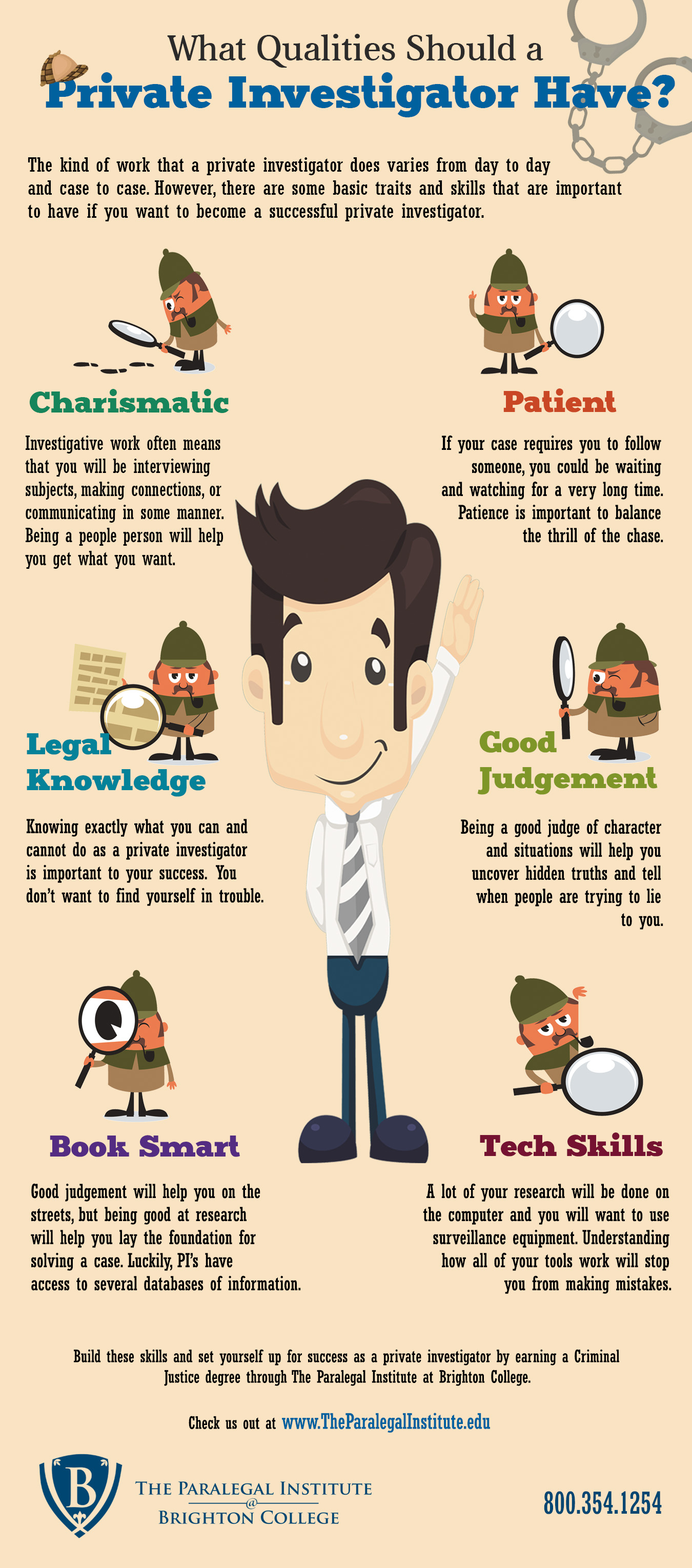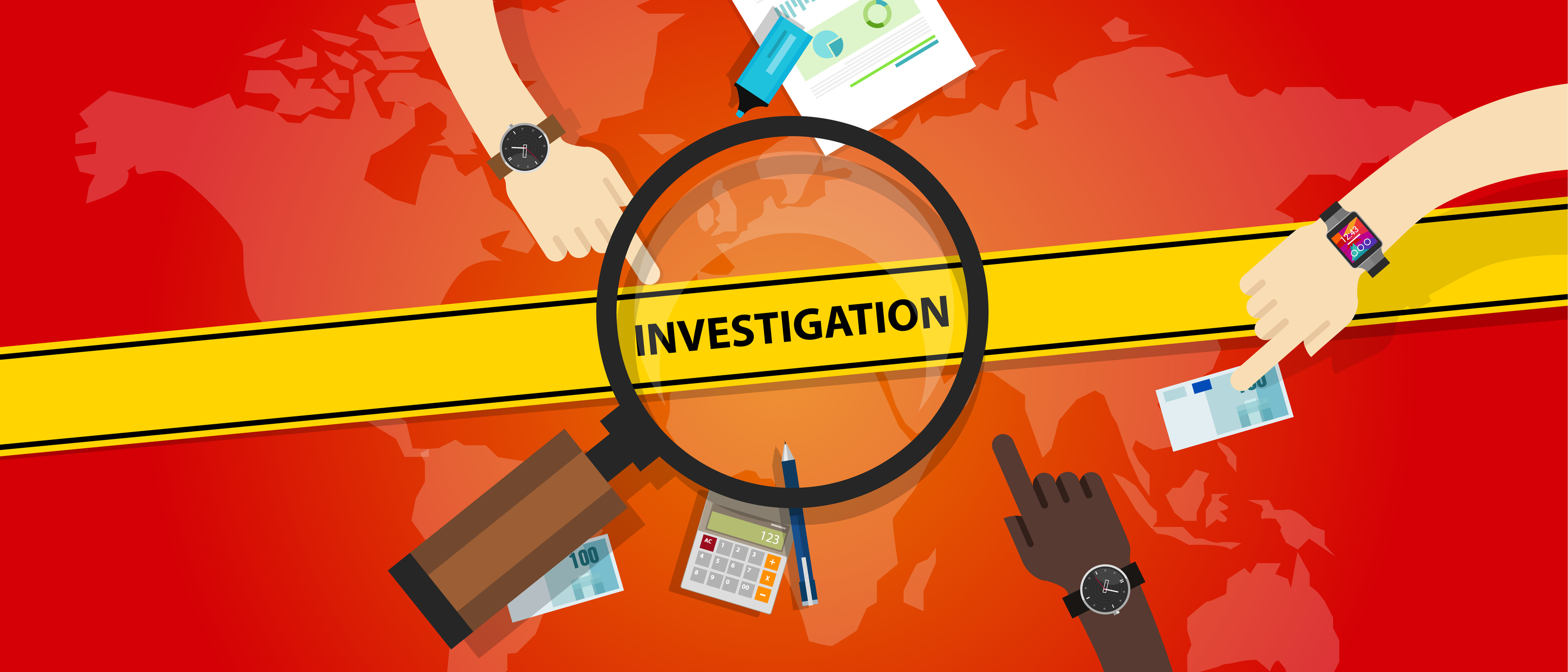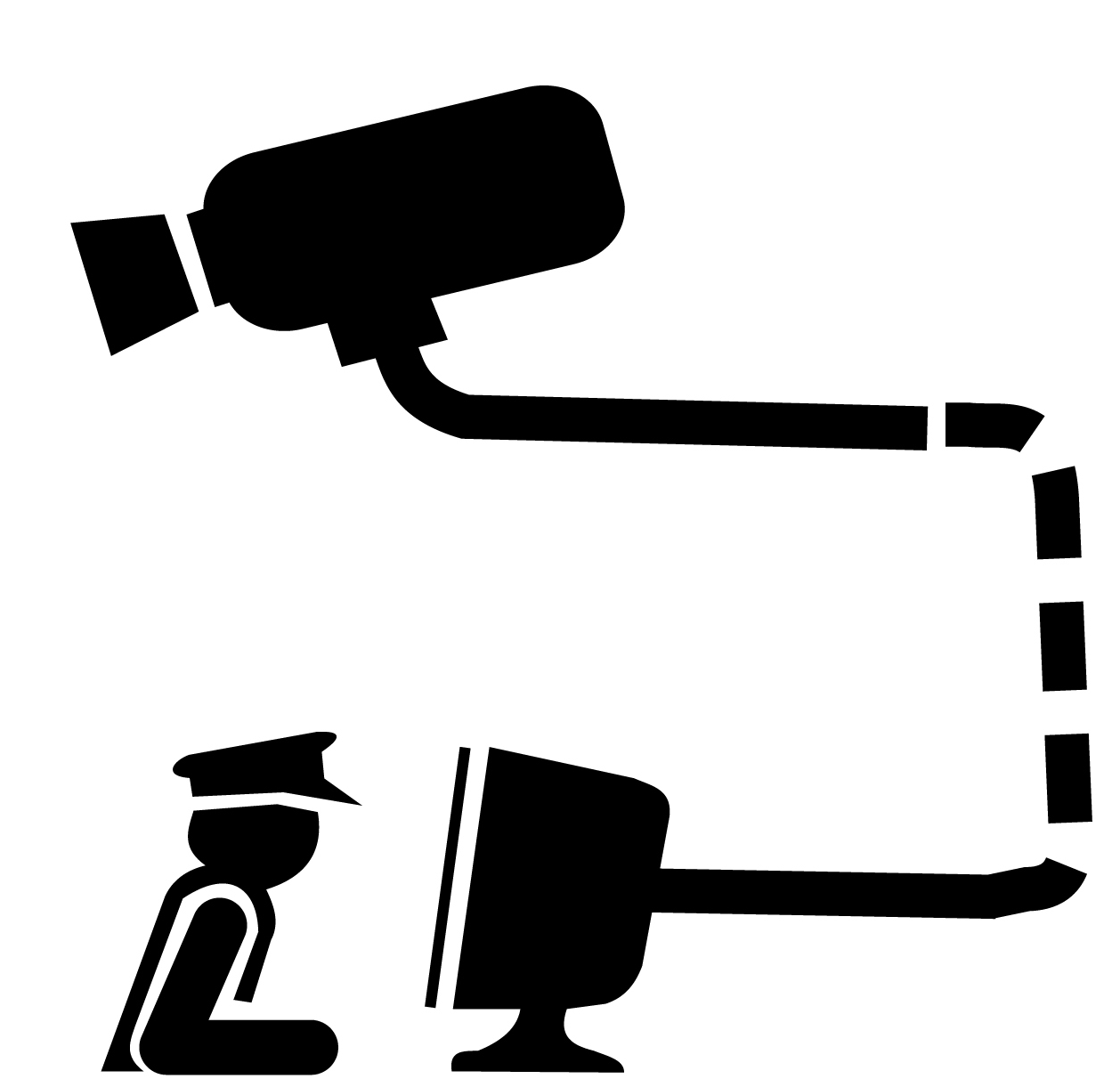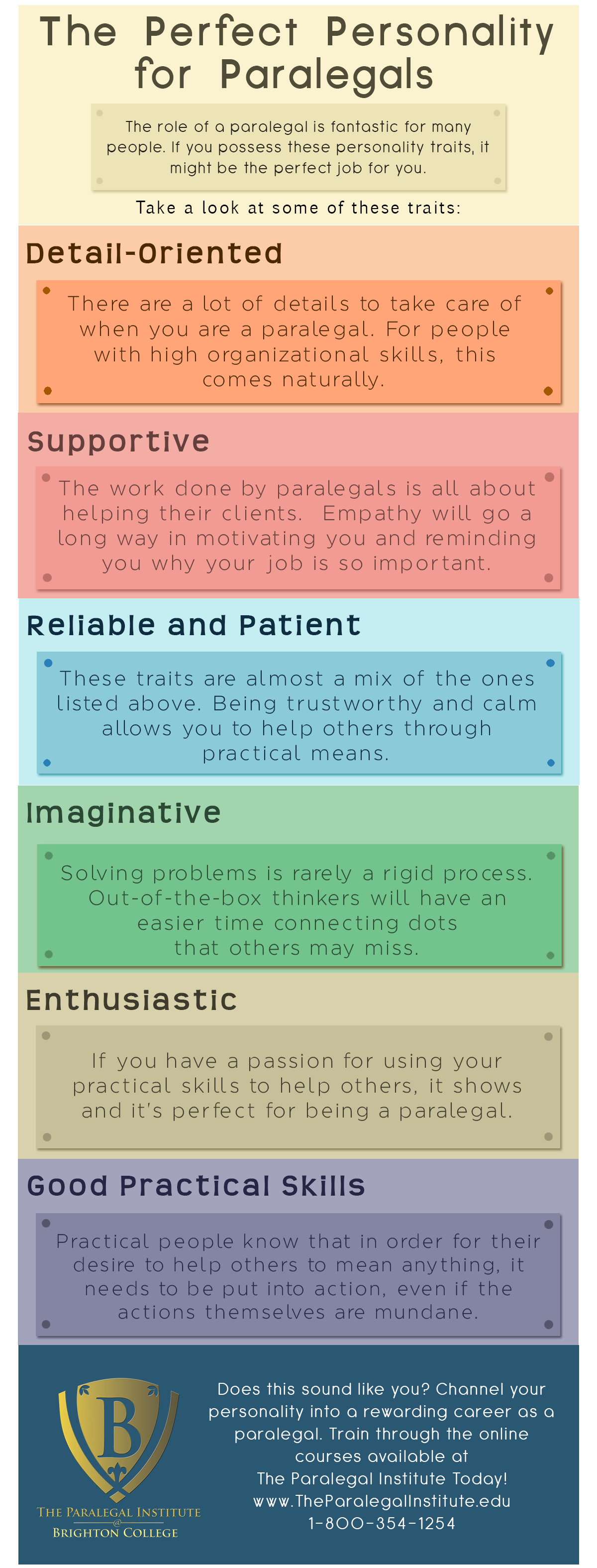

Category: Criminal Justice
How You Can Help Others as a Paralegal

If you’ve been thinking about becoming a certified paralegal, you have probably already done enough research into the field to know that the position of a paralegal is an important one, both to the individual lawyers in the office and to the makeup of the entire team of professionals working together on legal cases. You may also already know that attention to detail, excellent retention, and sharp interviewing skills are part of the whole professional paralegal package.
The best paralegals help keep the case on track in the office and also keep the client informed about the progress of the case and aware of the specific steps being taken as the case is being built. Because clients can have so much direct contact with the paralegal, that paralegal has to be clear and informational, especially at the frequent times when an attorney is simply too busy to talk. The paralegal will be the point person in the office who sees to it that the client is both up-to-date and comfortable that they are getting all the information they need to understand exactly how the case is progressing.
It is important that the client understand all the various different ways in which a paralegal can provide them with help and support. Clients who know and trust their attorney’s paralegal staff will undoubtedly be very happy to learn that the paralegal is able to provide legal services that are more affordable than when the same services are performed by an attorney.
“Attorneys enhance the legal profession’s ability to provide legal services to clients at an affordable rate. By delegating work which would have been done by the attorney (whose cost to the client would have been billed at a higher rate), lawyers have made paralegals a vital part of the legal profession) – Ohio Bar
A lot of what makes the paralegal an important part of the team and its success is the ability of the paralegal to communicate effectively with clients. Paralegals can not only take and give information and keep the client informed about developments and progress, but can keep the lines of communication open while providing a trusted conduit between attorney and client. So, while knowledge, hard work, and good organizational skills are must-haves for successful paralegals, communication skills are equally important. The bottom line here is that the paralegal plays a pivotal role in keeping on top of the exchange of information and facts between lawyers and clients.
There is another important area of this career that may not have been stressed as strongly as the need for these specific skills: the relationship between the paralegal and the client. Since the paralegal is often directly in contact with the client more than the attorney is, this can be a critically important part of the job and the skills required for it, such as understanding and empathy.
As an outstanding paralegal you will not just be familiar with the law, but interested in being supportive and sympathetic to clients who are often distressed at the legal situation in which they find themselves. As Lynne J. DeVenny, a certified paralegal with over 25 years of experience writes in her blog, clients have. . . “come to us during some of the worst periods of their lives, trusting us to help them and give them guidance until they can get to better days.”
This frank and accurate assessment of the position many clients find themselves in is important to remember: it is generally only a problem that they can’t solve themselves that will bring a client to a lawyer, and by any assessment, this kind of problem is going to be creating stress and anxiety in the client. A paralegal’s sensitivity and response to this stress can make the difference to a client who wants to be reassured that everything possible is being done for them.
The American Bar Association recommends that when hiring a paralegal, attorneys look for “. . . excellent organizational skills, someone who is. . . detail minded and able to multi-task, and who has a genuine interest in the law and empathy with clients’ problems. . .” .
With that in mind, you can decide if you have the characteristics—intelligence, drive, clarity and empathy—that create the best paralegals. And if you do, you can get the education and certifications you need for a career in this important and growing legal field at the Paralegal Institute @ Brighton College online, which offers two different accredited paralegal programs, a Paralegal Associate Degree and a Paralegal Studies Diploma. Contact us today!
What Qualities Should a Private Investigator Have?

The kind of work that a private investigator does varies from day to day and case to case. However, there are some basic traits and skills that are important to have if you want to become a successful private investigator.
Build these skills and set yourself up for success as a private investigator by earning a Criminal Justice degree through The Paralegal Institute at Brighton College. Get in touch with us at 800.354.1254.
Embed This Image On Your Site (copy code below):
Is a Criminal Justice Degree Right For You?

If you are considering your future career path, chances are you have a pretty good idea about what field you are interested in. And if you’ve been drawn to the field of criminal justice, it’s crucial for you to be sure that you are ready to make this commitment.
Since this is a serious choice that will impact your whole life, there are some basic questions you need to ask yourself about your emotional and psychological readiness to take on the demands of coursework, about creating a realistic schedule that will work with online learning, about where your financing will be coming from and if you have the temperament that is suited for the work you want to do.
Beginning at the Beginning
Life is hectic and costly, so it’s important to have certain plans in place before starting to work on your criminal justice certificate or degree. If you are planning to balance either a full or part time job while you are in the program or if you have family responsibilities like caring for children or an elderly parent, have you thought about how you will manage to schedule your time to include all your demands? Have you investigated how to pay for the program? Both of these are critical areas that should be settled (or on the way) before you begin classes so your mind will be free to concentrate on your coursework without these kinds of real-life distractions.
Another important question to answer – especially if you are an older student who is changing careers – is if you are willing to start at the bottom and work your way up. There are very few criminal justice jobs in which you will be able to skip steps or move up the ladder with lightning speed; you have to be willing to learn your field with all the grunt work it takes. This may be a challenge to you if you are used to either middle-management or working autonomously.
Requirements and Limitations
Are you comfortable carrying a firearm? If you aren’t, then your choice of criminal justice jobs will be somewhat limited. For example, paralegals and many crime scene investigators are not usually required to carry a firearm, but if you want to work in one of the law enforcement agencies like the the local police or the FBI, you will need to carry and be willing to use a gun. So make sure the field/fields of criminal justice that seriously interest you fall in line with your feelings about guns.
Age does matter. If you are in your mid-30’s, some agencies rule you out automatically. FBI agents and policemen fall into this category because both require you to be physically fit enough to pass the rigorous training at their academies. There are also stringent medical, hearing and vision tests for police officers, deputies, Highway Patrol and sheriffs, so if you have a disadvantage or disability in these areas, make sure you get the information you need ahead of time.
Temperament and Personality
While there are niches in criminal justice for nearly all types of people (for example, a forensic accountant is going to be very different from a DEA agent), it’s a good idea to evaluate your own personality in regards to your field of interest. It may sound trifling, but think of it this way: If you are a naturally outgoing and gregarious person, and you are interested in doing undercover work, your personality and the requirements of the job will probably be in conflict.
If you are interested in a job in corrections where you will be working directly with offenders, you should a good communicator and psychologically oriented. But if you want to be a crime scene investigator, you should have an inquisitive and analytical mind, and the ability to work alone or on a team.
To be a paralegal or a court reporter, you should always display professionalism in appearance and the ability to do exacting detail-oriented work; you need good organizational skills and to be comfortable following directions and meeting your deadlines. This is very different than the personality best suited to law enforcement jobs such as a state trooper or a police officer which require you to be a good communicator, a vigilant observer and able to remain calm under stressful situations.
There are many practical and personal angles to think about before starting your courses at The Paralegal Institute, but the best piece of advice for anyone considering making the commitment to a program that will lead to a new career is also the simplest: know yourself.
5 Important Blawgs for Criminal Justice Students to Follow
You’ve made the decision to pursue a career in criminal justice, and you’ve taken the first important step towards your goal: you’ve enrolled in a program like the one at Brighton Online College’s Paralegal Institute to earn your first accreditation and learn everything you can about your chosen field. You’ve arranged your finances and you’ve created time to really drill down and study, whether it’s making sure the kids are in bed or asking your boss to let you work a different shift so you can do your coursework when you aren’t tired. Have you got it all covered? Well, yes and no.
There is another aspect of learning about the criminal justice system that can be incredibly helpful to you: blogs about your field. As you know, the field of criminal justice encompasses a wide variety of career choices from law enforcement to Homeland Security to Parole officer; and in all the different fields there is one constant – they are always changing to adjust to the needs of the public and the agencies they serve. Finding a few blawgs (AKA law blogs) that are both interesting and informative about all aspects of your specific career direction can be an invaluable part of your learning experience.
Here are some blawgs you should keep in mind:
The Criminal Justice Degree, College and Career Blog is an excellent reference and source for all different aspects of what to expect and where to look for the program that is right for your needs. It has a partial but growing list of programs in various states, explanations of the different degrees available and blog posts about everything from choosing a school, to the application process, financial advice and requirements for accreditation and certification.
The United States Department of Justice (DOJ) puts out its own blog called Justice Blogs. Highly informative and inclusive, this is a must-read blog that ranges very widely over issues involved in the field. Its comprehensive search feature is your best path to any topic you want to read about, including cybercrime, drug crimes, human trafficking, tribal justice, consumer crimes, intellectual property, environmental crimes and many, many more pertinent topics. Posts here are longer than most and packed with information; and since this blog is updated nearly daily, it’s always up to date.
Are you current in your knowledge of the types of crimes committed and the numbers attached to them? Check out Crimes in America for the latest facts and figures on length of prison terms broken down by ethnicity and race, for news about reward offers, statistics on aggravated assaults and rapes, the efficacy of neighborhood foot patrols, bodycam programs for police departments, crime prevention tips, crime statistics, the country’s most dangerous cities and leading news from different corrections departments. If you want to stay up to date with your facts and figures regarding crime nationwide, this blog is an excellent reference tool.
Written by someone with unusual expertise, former felon and CPA Sam E. Antar, the White Collar Fraud Blog is an inside look at how crimes are planned and committed and has been named one of the top 25 criminal investigative blogs by the Huffington Post. Antar takes on the big companies – calling out Overstock.com for fraudulent accounting practices that led the company to materially overstate earnings and inflate its financial performance claims. This blog tackles tough legal cases including Bitcoin money laundering, insider trading, and congressmen and judges who have committed crimes that range from adultery to drug abuse.
If you are already a student at Brighton Online college – or if you are considering enrolling – the school has its own has its own blog for students and anyone who is looking to learn more about the field of Criminal Justice or Paralegal studies Topics range from single parenting when you are taking online courses to jobs available to you once you have completed your courses and earned your certificate or degree.
The knowledge you acquire as you prepare to enter the field of criminal justice is not just limited to coursework and studies. Blogs that are built around the subject matter can be just as informative and important to your new career path as any other learning format – as long as the blogs have been checked out and vetted. Getting a jump on specific topics and areas of interest makes you a better, more confident student, one who has a real-world grasp of the field as well as a factual classroom education.
Decided to be one of our criminal justice students? Learn more about the criminal justice program that suits your interest and experience ? Fill out our contact form or call our main office 1-800-354-1254 today.
Criminal Justice Students: The Pitfalls of Social Media
The 2012 Summer Olympics opened in London on July 27th with the traditional processional and the lighting of the Olympic torch. Everything seemed routine, but it was anything but, because five days earlier an athlete had been sent packing for an offensive, racist tweet: Greek triple-jump champion Voula Papachristo angered the Olympic committee and hundreds of thousands of others by tweeting disparaging comments about African Olympic contenders, and the committee responded by sending her back to Greece, disgracing both the athlete and her home country.
The lesson is clear: be careful what you put out there on social media because a prospective employer can find it and decide you aren’t a viable candidate for a position. This kind of character assessment can occur even before you interview since savvy employers make use of services like Jobvite which provide applicant tracking for the social web.
According to the 2014 Jobvite Social Recruiting Survey, 93% of recruiters make use of social media to find and vet future employees. So any posting on Facebook, Twitter, etc. can wind up with you losing out on a job because of something you wrote one, two or five years ago. Don’t let your dedication to working in the criminal justice system get derailed by posts that reflect negatively on you as one of the criminal justice students
There are certain kinds of posts that are obviously going to wave red flags at recruiters and employers. Have you posted nude pictures of yourself or pictures of you and your friends partying just a little too hard in Cabo or Daytona Beach? Have you gone off on people or engaged in online spats that reflect badly on your character?
Here are a few of the real-life responses by professionals to what they have seen on applicants’ social media accounts:
“The worst accounts I came across were students seeking an internship, and those included tons of profanity and in one case a few way too revealing (borderline nude) pics. I’m all for self-confidence, but when I’m looking for someone to be a team player, I don’t want to get into a situation with big egos or improper dress.”– Amanda Forbes Mestdagh, APR
“One time, I saw a candidate who I was really interested in bringing in for an interview, and after checking his social media accounts, which were filled with his weekend activities (some being illegal), I knew we couldn’t hire him if we wanted to, so I never called for an interview.” – Kindra Svendsen, digital marketing/PR specialist, Speak Creative
Another common online social media mistake is to voice negative opinions about current or prospective employers; this is a case of “if you have nothing positive to say, don’t say anything at all.” And be careful that your different social media accounts agree with each other. For instance, if your Linkedin account touts your work ethic but your Facebook account reflects you as a party animal, you may be in for trouble.
Free speech is a right, but your political opinions have the potential to offend a recruiter and cause you to lose out on jobs that might be perfect for you. Pay attention to universal complaints about poor grammar and spelling or a prospective employer is liable to think that you are either too careless or simply not literate enough to be able to handle material without making noticeable errors. And don’t use profanity; it may turn out that your workplace is casual and accepts some profanity, but it’s a bad idea for a first impression.
We know that no information put online ever truly vanishes (deleted tweets can be restored, Instagram photos remain intact in cyberspace and embarrassing pictures you’ve been tagged in by your friends are there forever), but what can be done to rectify the situation? Don’t lose hope – it is possible to clean up your online image, but you need to be dedicated to the task.
First, Google yourself, so that you can cover all bases. You can untag yourself in photos on Facebook, and you can also request the website administrator to remove a post. Next, use your privacy settings. Clean up your tweets and posts and remove all “incriminating” photos. Make sure to add posts, tweets and content that reflect your interest in the field you are applying to get into. And again – importantly – make sure that your resume and your Linkedin account are in sync about your background and experience.
If you need more help, there is a Facebook app called Simplewash that will clean up your Facebook presence for you.
Interested in the field of Criminal Justice? Visit our wide ranges of Criminal Justice Program today. You can also reach us at 1-800-354-1254 or admissions@theparalegalinstitute.edu
The Perfect Personality for Paralegals
The Perfect Personality for Paralegals
The role of a paralegal is fantastic for many people. If you possess these personality traits, it might be the perfect job for you.
Take a look at some of these traits:
Detail-Oriented
There are a lot of details to take care of when you are a paralegal. For people with high organizational skills, this comes naturally.
Supportive
The work done by paralegals is all about helping their clients. Empathy will go a long way in motivating you and reminding you why your job is so important.
Reliable and Patient
These traits are almost a mix of the ones listed above. Being trustworthy and calm allows you to help others through practical means.
Imaginative
Solving problems is rarely a rigid process. Out-of-the-box thinkers will have an easier time connecting dots that others may miss.
Enthusiastic
If you have a passion for using your practical skills to help others, it shows and it’s perfect for being a paralegal.
Good Practical Skills
Practical people know that in order for their desire to help others to mean anything, it needs to be put into action, even if the actions themselves are mundane.
Does this sound like you? Channel your personality into a rewarding career as a paralegal. Train through the online courses available at The Paralegal Institute today!
Entry Level Criminal Justice Jobs

Are you interested in the field of criminal justice and thinking seriously about going into a program to meet entry-level requirements? Then you will be happy to learn that a wide variety of positions will be available to you, perhaps many of which you aren’t even aware of. And while it might be a little more difficult to land that crime scene analyst position (thank you, CSI!) it can be done.
Careers in criminal justice can be found in the private sector or in the different tiers of government agencies. According to the Bureau of Labor Statistics, in 2013 there were approximately three million U.S. residents employed in criminal justice jobs ranging from homeland security to corrections, law enforcement and law firms.
There are many careers in criminal justice that require a bachelor’s or a master’s degree, but there are also many entry level jobs that only require an associate’s degree or a certificate to start. And with the explosion of online schools that offer courses towards those degrees, you can start your career with a program specializing in one area and continue to work or raise a family while you go on to earn higher degrees if that is what you decide to do.
Here are some of the entry level criminal justice jobs that are available to people without a bachelor’s degree or above.
Court
• Court Clerk
• Court Reporter
• Bailiff
In these positions you will work within the courts, both criminal and civil. You will be in daily contact with lawyers, judges and police officers, and be responsible to all those parties. This is an integral part of the criminal justice field that operates at the courthouse, and will give you an inside look at our court system and how it works.
Legal
• Paralegal
While it is still considered to fall within the legal category, being a paralegal is quite different from those discussed above. Paralegals who start with either a diploma or an associate’s degree are in very high demand; and the job opportunities exist for them in both small and large law offices in all areas of the law. These are great jobs on their own or for anyone considering law school, since it gives you the opportunity to gauge the field before committing to the time and expense of law school.
Corrections
• Substance Abuse and Behavioral Disorder Counselor
• Corrections Officer
Corrections officers work inside the prison system dealing with both prisoners and staff, while substance abuse counselors work at substance abuse facilities or hospitals. They are tasked with client evaluation including background history and severity of addiction.
Homeland Security
• Customs and Border Protection Officer
• TSA (Transportation Security Officer)
Unlike Border Patrol which requires a minimum of a B.A. to start, Customs and Border Patrol agents work the 300+ ports of entry to the U.S. screening returning citizens, visitors and cargo to enforce customs, immigration and agricultural laws and to help prevent human trafficking and contraband including drugs and weapons from being allowed into the country.
Law Enforcement
• Criminal Investigator
• Deputy Sherriff
• Fire Investigator
• Fish and Game Warden
• Transit and Railroad Officer
• Police Officer
• State Trooper
Law Enforcement includes a wide variety of position from Conservation Officers (Fish and Game) to transit and railway enforcement, fire investigator, state trooper and more.
Private Sector
• Loss Investigation Specialist
• Private Investigator
• Security Guard
• Fraud Investigator
• Private Security
Within this category, Loss Investigation Specialist is a particularly active field. With an estimation of $32 billion in merchandise stolen annually just from malls, much of the theft done by professional thieves, loss specialists are in high demand. Likewise, private security for individuals and firms are much needed as are security guards and fraud investigators.
For those individuals who like the idea of working independently of institutions, doing private security for people who are worried about becoming targets may be the right path for you. And fraud investigators, who can work on either civil or criminal investigations, can put sharp investigative skills to work while investigating credit card or insurance fraud. This job involves many skills including interviewing the victims of fraudulent activity, researching transactions and records, conducting surveillance and executing search warrants.
It’s important to remember that many of these jobs that require certificates or associate degrees to begin will require more advanced degrees in order to move up the ladder. But making a start by enrolling in an online college program like the Paralegal and Criminal Justice program offered by Brighton College is the perfect way to begin a career that is rewarding both lucratively and in the knowledge that you are doing something to help society.
Can You Work in the Criminal Justice Industry if You Have a Record?

If you are thinking about going into the criminal justice industry but you have a criminal record, you must wonder if any kind of job in that field is open to you. There is no simple yes or no answer because there a many, many variables that apply. They may depend on where you live, the severity of the crime or the type of crime. One thing is sure, and that is you should never try to hide the fact that you have had an arrest or a conviction.Almost all employers in all states now utilize background checks when considering applications, but again, variables apply: the type of work you are applying for makes a big difference. As you may already know, the criminal justice system encompasses an extremely wide variety of jobs, and while some of these – such as becoming a CIA or FBI agent – will never be available to someone with a record, there are actually a lot of opportunities for people who have tangled with the legal system before.
Many people thinking about criminal justice careers are young and hoping to begin a lifelong career. If this is the case, consider when and if your record can be sealed. Getting your record sealed may require that you actually go to a courthouse in the same jurisdiction where you were convicted and deliver a special request. If you are successful, then you can legitimately answer “no” when filling out a job application that asks if you have a criminal record. But not all offenses committed under the age of eighteen are necessarily available to be sealed.
While a misdemeanor is obviously less serious than a felony, misdemeanors do stay on a criminal record for life. However, not all misdemeanors automatically show up on a background check. For instance, misdemeanors such as disorderly conduct, vandalism or petty theft, which are prosecuted at the county level, may not appear if your prospective employer runs a state background check; that being said, it is highly advisable that you be completely honest with your prospective employer and tell them about it.
Felonies present a different case. For instance, a Class A crime such as murder, arson assault or a sex crime can never be sealed – although it is unlikely that anyone with that background will be out of prison or considering a criminal justice career. If you committed what is considered a Class B crime including burglary, drug sales, or possession of stolen property, there is a mandatory ten-year period before you can request your record to be sealed. Class C crimes such as vehicle theft or possession of a firearm requires that you wait for five years and not have been convicted in the interim of any other crime. And if a youthful indiscretion resulted in the order to perform public service or take classes, your record is automatically sealed when you reach the age of eighteen.
Avvo is an online legal service that mostly gives advice to those wishing to become lawyers, but it can be an extremely helpful resource for answers to specific questions about other areas of criminal justice employment.
One wrinkle in the area of employability is that many criminal justice jobs that may be available to someone with a record may also include specific requirements that make it impossible to accept such a job. For instance, felonies that prevent an individual from purchasing, carrying or owning a firearm will automatically limit the kinds of positions you can accept. So while you may be able to get a job in private security with a record, if your employer requires you to carry a firearm for protection (yours or theirs) you will simply not be able to fulfill the requirements of the position.
Another confusing area in this process is that so many states take different approaches to this problem. Arizona, Colorado, Connecticut, Florida, Kentucky, Louisiana, Minnesota, New Mexico, New York and Washington have recently banned employers completely from asking applicants about criminal backgrounds; obviously, this makes it considerably easier for someone with a record who does want to go into criminal justice to get that job.
This is a complicated topic, and there are many areas – such as the difference between sealing a record and expunging a record – that deserve separate articles. What is crucial if you are considering a criminal justice job but have a record is that you thoroughly research your own state’s laws and requirements and understand the impact your history will have your on chance to get and succeed in the job of your choice.
Interested in the field of Criminal Justice? Visit our wide ranges of Criminal Justice Program today. You can also reach us at 1-800-354-1254 or admissions@theparalegalinstitute.edu
How to Become a Private Investigator

Do you have an inquisitive mind? An interest in law and order? An affinity for justice and a proactive approach to problem solving? If you answered yes to those questions, then you are someone who should consider a career in private investigation. Private investigation is not what you might think; it doesn’t all involve surveillance of cheating spouses or recovering stolen artifacts of great value. It’s a booming professional field which goes far beyond simple domestic investigations and offers jobs across a wide range of businesses and law enforcement agencies. It’s a career that can take you from anti-terrorism to computer crimes to human trafficking to working as corrections officer or an insurance investigator.In other words, a career in private investigation offers many different options and directions for you to choose from and that makes it a flexible, multifaceted and rewarding career choice. Even though you may not wind up slinking down dark rain-slicked alleyways in a slouch hat and a trench coat, you will be asked to call on your skills and training to solve sometimes intricate puzzles that no one else has solved.If this is the kind of challenge that grabs your attention then here’s some information that will help you get on the road to becoming a private investigator.
Before doing anything else, evaluate objectively what kind of temperament you have. A good p.i. has to be a good communicator and an even better listener. You are observant and analytical, and have a knack for reading subtext in conversations, understanding body language and assessing degrees of truthfulness. You’ve got a strong personal moral compass and can work independently. You are able to remain objective and you produce results that are fact-based.
If this sound like a good fit for you, your first official step will be to acquire the knowledge and training you’ll need, since becoming a private investigator is not quite as simple as hanging out a shingle and waiting for clients to walk in.
A Criminal Justice diploma from the Paralegal Institute at Brighton College requires eight core classes (30 units). The program provides the student with an comprehensive overview of the field and with specific classes geared towards gaining an understanding of the different areas of the criminal justice system. Introduction to Criminal Justice provides the overview and the other seven classes concentrate on specifics in Constitutional Law, Criminal Law, Criminal Procedures, Criminal Investigations, Ethics, Corrections and Juvenile Delinquency.
After you have successfully completed the courses, there’s a good chance you will also need a state license to practice. Over 40 states now require them and the  states that don’t often allow individual counties and cities to have their own licensing requirements.
states that don’t often allow individual counties and cities to have their own licensing requirements.
These licensing requirements can differ from state to state, so check with your state to see what they require. There are some general requirements that most of them have in common. Most want proof of a high school diploma or equivalent GED and for the applicant to meet an age minimum which can vary from state to state; to have a record that is free of felony convictions; to have had either industry experience or education; and to have proof of legal citizenship or residency.
After you’ve gotten your diploma and met your state’s licensing requirements, you are ready to get into the field. You will be qualified to accept entry level positions with a great many law enforcement agencies and private corporations. And in your work you will notice that there are many law enforcement officers and lawyers who possess the same degree you have, because it’s a useful and applicable tool for anyone who is involved in the field of investigation.
If you join a law enforcement agency or a very large corporation – like a national insurance agency or a bank that has its own fraud investigation unit – you will probably have access to any equipment you might need in your investigations. If you decide to join a small agency or to work for yourself, you will want to invest in some basic surveillance equipment like video and digital cameras, recording devices, gps trackers, a charger or backup battery and binoculars. There is a vast array of tools that can be used during investigations, but at first it’s better to just stick to the basics and avoid extra expenses on equipment that you may or may not ever use.
Private investigators can work in a varying capacities including personal protection, employee screening, computer forensics, insurance fraud, industrial espionage, retail loss, corrections, background checks, anti-terrorism and many more.
One growth area with an ongoing need for investigators is cyber-crime, which continues to expand and spawn endless varieties of global scams like identity theft, extortion, sports betting and child pornography. Given the limitless reach of the internet, there will undoubtedly continue to be a growing need for individuals with good investigative skills who can take on these difficult “invisible” crimes.
So whether you want to be a part of the global battles on trafficking or terrorism, you are fascinated by sophisticated fraud schemes or you really do want to be the next Sam Spade, there’s an investigation niche for you.
If you decide you want to advance once you are in the field or if you want to start out your investigative career with even more education under your belt, you can continue your online studies at Brighton College to earn a Criminal Justice Associates degree.
Non-Government Criminal Justice Careers
When people think of jobs in the field of criminal justice, positions like police officer, corrections professionals or even fish and game warden. However, there are a variety of positions outside of those affiliated with the government you could pursue with this degree. Let’s take a look at just some of the non-government criminal justice careers that are available.
Bounty Hunter
These workers are typically independent contractors, rather than working for any particular agency or organization. They don’t always require a degree, but an education in criminal justice could help to get you hired. Bounty hunters search for wanted criminals or individuals with an arrest warrant. They are paid a percentage of the bail for the wanted individual.

Crime Prevention Specialist
These specialists assist companies and organizations in various ways. They may provide security consultation, install security equipment, monitor security systems or teach crime prevention workshops. Crime prevention specialists may also analyze crime patterns and statistics in order to create strategies for minimizing crime.
Insurance Investigator
These investigators research and investigate claims for insurance companies. They utilize skills learned through their customer service training in order to determine whether false claims have been reported. This kind of false activity is considered fraud and comes with criminal penalties.
Loss Prevention Officer

The position of loss prevention officer is one that comes with a great deal of job security, as these duties require a trained individual to perform them and cannot be automated through the use of electronic surveillance equipment.Those pursuing a career as a loss prevention officer will usually be employed by a retail store, though they also work for private companies. Their primary role is to prevention the theft of merchandise or company property by customers or employees. Loss prevention officers can work directly for the store or company. They may also be hired by a third-party employer specializing in placing such professionals.
Private Investigator
Those wishing to have a great deal of personal freedom and to help people obtain information on missing relatives, determine the activity of a loved one such as a spouse suspected of infedility or prove the fraudulent activity of an individual may wish to look into becoming a private investigator. These jobs are not usually as rigid or as subject to bureaucracy as typical law enforcement positions. A PI works for an independent agency to provide information to clients through surveillance or other investigative methods.
Security Guard
These criminal justice professionals work for private organizations or properties to guard against burglary, petty theft or other crimes. They monitor and inspect buildings and property in order to deter trespassers from engaging in criminal activity. They may patrol on foot or provide electronic surveillance. Security guards are needed in nearly any business, residential complex or retail establishment. Thus, there are often jobs available.
If you think you would like to pursue a degree in criminal justice, contact a representative at The Paralegal Institute today for more information on our criminal justice Associate’s degree or our criminal justice diploma.


